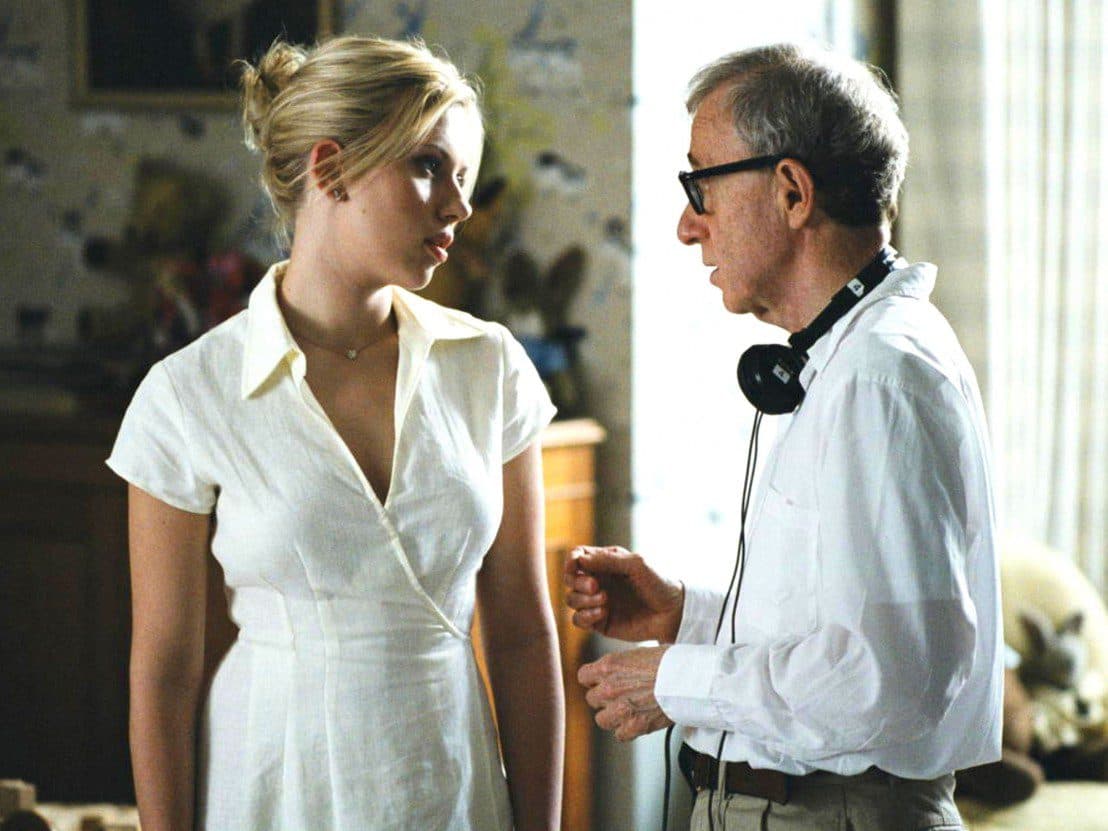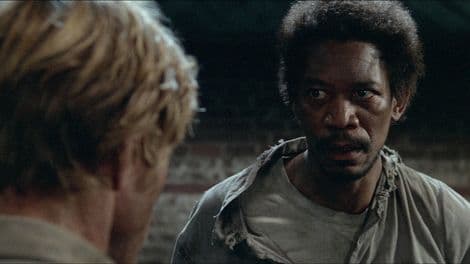Unthinkable (2010): When Morality Gets a Time Limit and Nuclear Codes Are Involved
Let's talk about "Unthinkable." It’s not light-hearted. Unless watching ethical lines blur is your idea of fun. This 2010 thriller throws you into a grim scenario. It makes choosing what to stream seem easy.
Picture this: A Muslim extremist, let’s call him Yusuf (played by Michael Sheen), plans to plant three nuclear bombs in the US. Subtlety is not his style. The FBI, in a prompt response, catches Yusuf. Great, right? Wrong. They have him, but the bombs are still ticking, and their locations are unknown.
Enter FBI Agent Helen Brody, played by Carrie-Anne Moss, and Harold Humphries, or “H” (played by Samuel L. Jackson). H isn’t your typical interrogator. Think less "good cop" and more "cop who skipped the manual for torture." He comes from Black Ops, which means they play by their own rules. Those rules are flexible.
The clock is ticking. Cities could become craters. Yusuf isn't volunteering bomb locations over tea. This sets the scene for an uncomfortable question in "Unthinkable": How far will you go for information when innocent lives are at stake?
Plot Unpacked: A Race Against the Detonator
The film starts quickly. Yusuf, our 'uncooperative subject,' announces his plan in a video. Terrorists know the internet's power. The FBI isn't pleased about three cities vanishing. Agent Brody races against time to decipher Yusuf's silence before disaster strikes.
H enters the scene. Harold Humphries. His methods make waterboarding feel like a spa day. He comes to 'persuade' Yusuf to talk, meaning escalating brutal measures. Think power drills, not pep talks. Brody starts to question the brutality as time runs out. The moral tightrope wobbles.
- The Setup: A ticking clock scenario.
- Agent Brody is in a frantic race against time.
- Three nuclear bombs are set to detonate in different cities.
- The Antagonist: A Muslim extremist, Yusuf, with the information.
- Yusuf has planted the bombs and has been caught.
- He remains silent about their locations.
- The Interrogation: Brutal methods versus ethical lines.
- "H" uses harsh interrogation techniques.
- Brody questions the morality of these methods as time runs out.
Meet the Players: Cast and Characters
"Unthinkable" relies on its three leads, and they deliver. Samuel L. Jackson as "H" is unmistakably himself. He shows intensity that makes you believe he can get information from a brick wall, let alone a terrorist.
- Samuel L. Jackson as "H": The Black Ops Interrogator
- Freelance interrogator known for his 'special' skills.
- He believes extreme measures are vital.
- Jackson embodies efficiency, getting results at any cost.
Michael Sheen as Yusuf is chillingly effective. No shouting needed. His quiet defiance and acceptance of his horrific situation are unsettling. He's calm during the storm, convinced of his cause, making him a formidable adversary, even in a chair.
- Michael Sheen as Yusuf/Younger: The Silent Extremist
- The terrorist who holds the key to avoiding catastrophe.
- Maintains chilling silence during interrogation.
- Sheen portrays conviction driven by extreme ideology.
Carrie-Anne Moss as Agent Brody serves as the audience's moral compass. Initially focused on stopping the bombs, she pushes boundaries. But as H's methods escalate, she becomes the voice of reason. She's grappling with ethical implications. She reminds us there’s a line we shouldn’t cross.
- Carrie-Anne Moss as FBI Agent Helen Brody: The Moral Anchor
- FBI agent focused on stopping bombs at any cost.
- Grapples with ethical implications of "H"'s techniques.
- Represents the audience's moral dilemma on using extreme measures.
Themes That Make You Squirm (In a Good Way?)
"Unthinkable" is more than just ticking clocks. It's a film that makes you think. Wrestle with uncomfortable questions about morality and consequences. What does it mean to fight "the good fight" in an asymmetric world? It's less about explosions and more about internal conflict.
- Morality in the Gray Zone:
- The film asks: Are extreme measures justifiable?
- It explores compromising moral principles under pressure.
- Consequences of Actions:
- Every choice carries significant consequences.
- The film highlights ripple effects of high-stakes choices.
- Fighting the "Good Fight" in Asymmetrical Warfare:
- Discusses challenges against an unconventional enemy.
- It raises questions about maintaining moral codes.
- Darkness Within Ourselves (Especially Post-9/11):
- Taps into fears during the War on Terror era.
- Examines potential personal darkness when facing threats.
It explores fears within ourselves, especially post-9/11. The film suggests that in the "War on Terror," the most terrifying battles may be internal.
Endings: Choose Your Dose of Existential Dread
The endings of "Unthinkable" come in two flavors: original and extended. Both leave you feeling queasy, fitting given the subject matter. The original ending is bleakly decisive.
The original reaches a peak tension moment. An official, clueless, draws a pistol on H to keep him interrogating. Yusuf grabs the gun. In his last moments, he asks Brody to care for his children before taking his life. Roll credits. Existential dread level: high.
- Original Ending: Yusuf's Suicide
- Yusuf seizes a gun in a dramatic climax.
- He makes a final request to Brody regarding his children.
- Yusuf takes his own life, leaving unresolved tension.
The extended ending offers hope followed by cold reality. An FBI bomb unit approaches one bomb. An agent disarms it with sweaty palms and nerves of steel. A sigh of relief? Not so fast. The camera reveals another bomb. A digital timer counts down to detonation. Fade to black.
- Extended/Alternate Ending: The Hidden Bomb
- The FBI unit disarms a bomb in Los Angeles.
- A second hidden bomb is revealed.
- The hidden bomb’s timer counts down to detonation, ending on a cliffhanger.
Where to Watch: Streaming and Rental Options
Want to face this ethical pressure cooker? You have options. As of June 2024, "Unthinkable" is available on various streaming platforms. Netflix is your best bet if you’re subscribed. It can also be found on Prime Video and other services.
TV, Roku, and Tubi offer options, but availability may vary by region.
If streaming is not for you, rent or buy from Google Play Movies or Amazon Video. Finding "Unthinkable" is easy. Watching it? That poses the real challenge as you confront its heavy questions.
- Streaming Platforms:
- Netflix, Prime Video, Fandango at Home, Apple TV, Roku, Tubi (availability varies).
- Hoopla (free streaming option, availability may vary).
- Rental/Purchase:
- Google Play Movies, Amazon Video, Fandango at Home.
The Nitty-Gritty: Rating, Runtime, and Credits
"Unthinkable" runs for 1 hour and 37 minutes. It presents a moral quandary without consuming your whole evening. Rated R for violence and intense themes, it is not suitable for family movie nights, unless your family discusses existential issues while snacking.
Gregor Jordan directs the film, guiding it through ethical dilemmas. Peter Woodward wrote the screenplay, creating a story that is gripping and unsettling. Thank them for this thought-provoking cinematic journey that challenges viewers' emotions.
- Rating: R (mature themes, violence, disturbing content).
- Runtime: 1 hour 37 minutes (fits heavy content into a brisk pace).
- Director: Gregor Jordan (master of this intense thriller).
- Screenwriter: Peter Woodward (crafted this complex narrative).
Is It Worth Your Precious Time? The Verdict
Should you watch "Unthinkable"? If you want light entertainment, pass. If you seek films that question your values and linger in your mind, then yes. The premise may push believability, yet the film is skillfully made. The cast excels in performances, while the script invites debate.
"Unthinkable" sparks discussions about morality and extreme actions in crises. It stands apart from fluffy entertainment. Moments like these are necessary in film. Prepare for thought-provoking scenes and uncomfortable reflection.
- Verdict: Yes, for fans of thought-provoking thrillers.
- Superb cast with strong acting and an intelligent script.
- Even with its far-fetched premise, the film explores deep themes.
- Sparks vital conversations about ethics during terror.
"Unthinkable" in the Cinematic Landscape: A Quick Comparison
"Unthinkable" shares its terrain with films that challenge moral boundaries. Consider Jordan Peele's "Get Out" and "Us." Though different in tone, both touch on profound themes.
"Unthinkable" vs. "Get Out"
- Comparison with "Get Out":
- "Get Out": Not Based on Reality, Nevertheless Relevant: It explores urgent societal issues about race.
- Plot Twist: Girlfriend's Role: Rose's betrayal forms the crux of the horror.
- Alternate Ending: Stark Impact: Chris's possible imprisonment signifies racial inequalities.
"Unthinkable" vs. "Us"
"Us" navigates themes of oppression and uprising through its tethered characters. Its identity swap twist leads to unsettling complexity. "Unthinkable" lacks doppelgangers or obvious social commentary yet evokes a sense of disturbance and underlying tension. Both films explore dark facets of humanity.
- Comparison with "Us":
- "Us": Oppressed Rising Against Their Suppression: Tethered reflect rebellion against societal repression.
- Plot Twist: Identity Shift: Adelaide's swapped identity enhances the film's unsettling tone.
Related But Different: "The Unthinkable" (Swedish Film)
"The Unthinkable" also exists, a Swedish film titled "Den blomstertid nu kommer," translating to "This Precious Summer Blooms." This disaster thriller focuses on Sweden under attack and a man's race to reconnect with his girlfriend amidst chaos. Quite different from our American moral thriller but worth noting for similar names.
- Related Film: "The Unthinkable" (Swedish):
- A disaster thriller set in Sweden during an attack.
- Centers on a man's efforts to reunite with his girlfriend amidst turmoil.
- Diverse from the 2010 American film "Unthinkable."
Samuel L. Jackson: Beyond "H" – A Star's Trajectory
Samuel L. Jackson plays the intense interrogator "H." "Unthinkable" highlights his commanding screen presence. His breakthrough role was Jules Winnfield in "Pulp Fiction." That standout performance garnered a BAFTA and an Oscar nomination, confirming his significance in cinema.
Jackson's commitment shines through quirky stories about buying tickets to his films. He reportedly purchases $1,000 in tickets to ensure box office success, donating them to churches or families. This dedication shows his passion while supporting his projects creatively.
- Samuel L. Jackson - Beyond "Unthinkable":
- Plays "H," Black Ops interrogator in "Unthinkable."
- Breakthrough Role: Jules Winnfield in "Pulp Fiction" (BAFTA and Oscar nominated).
- Quirky Fact: Buys tickets to elevate box office and uplift communities.
The Unthinkable: More Than Just a Movie Title
The term "the unthinkable" expresses something beyond belief or acceptance, often negative or disastrous. It signals moments when reality strays into unforeseen territory, challenging fundamental beliefs.
Amanda Ripley's book "The Unthinkable" investigates how humans respond to disasters when faced with the unimaginable. Additionally, there's a lighter film titled "Unthinkably Good Things," exploring friendship and choices in Tuscany. The unthinkable encompasses complex facets of our psyche and invokes fascination with human limits. The film "Unthinkable" captures this essence through its gripping narrative.
- The Unthinkable (Concept):
- A situation beyond belief or acceptance, often disastrous.
- Represents events that challenge normal expectations and perceptions.
- Related Works with "Unthinkable":
- "The Unthinkable" by Amanda Ripley: Examines human responses to disasters.
- "Unthinkably Good Things": A lighter tale about friendship set in Tuscany.













Responses (0 )